In light of the ongoing discussions around COP27 and the necessity of sustainability in business at this year's United Nations Climate Change meeting, we together analysed what this means and how Oak and other businesses may overcome these challenges.
Sustainability within the business sector is high on the agenda for this year’s UN climate change conference (COP27). A key goal is to increase the credibility and accountability of net-zero commitments, while also removing loopholes that allow for greenwashing and flimsy pledges.
In line with this goal, UN experts have released guidelines detailing what emission reduction targets and timelines are suitable for net-zero pledges, what net-zero pledges should include, and what actions contradict net-zero claims.
Key guidelines include:
- Net-zero pledges must be compatible with limiting global warming to 1.5 degrees, meaning global emissions need to be reduced by 45% by 2030, and reach zero by 2050.
- Emissions data and net-zero targets, plans, and progress should be publicly disclosed annually.
- For finance organisations, emissions from all finance activities should be included in net-zero targets.
- Detailed plans for meeting net-zero targets must be made, and management must be held accountable for the deliverance of these plans.
- Pledges should include targets for ending the use of and/or support of fossil fuels.
- Financial organisations should facilitate increased investment in renewable energy and should create investment products aligned with net-zero.
- Financial organisations should end investment and financing of businesses linked to deforestation and remove agricultural commodity-driven deforestation from their investment and credit portfolios by 2025.
Other expert groups will be promoting their net-zero recommendations at the conference, including The Science Based Targets Initiative (SBTi), who are aiming to increase the adoption of their net-zero standard among businesses. Their standard requires a minimum of a 90-95% reduction in emissions by 2050 before carbon removals can be used to claim net-zero, and prohibits claims of carbon neutrality until these targets are met. The standard also calls for rapid and deep emissions cuts within and beyond a business’ value chain.
Another key issue expected to be explored at the conference is the creation and implementation of net-zero regulations and legislation. Many experts argue that current regulations do not encompass enough businesses and the uptake of voluntary commitments will not be enough to limit global warming. The UN expert group have recommended that regulations must be developed by governments globally, and should first target high-impact emitters including financial institutions.
What does this mean for businesses?
The direction of travel is clear—whether mandated through legislation or pressured by stakeholders, all businesses will need to make a net-zero pledge, sooner than later. Incoming stricter and more standardised measures will shine a light on any weak pledges or businesses failing to do their part, so it is imperative that organisations put sustainability on the very top of their agendas.
Starting a net-zero journey can be a daunting task for many businesses. Luckily, innovative software and services are becoming available which streamline the process.
Digital platforms, like ESI Monitor’s FutureTrack, empower businesses to take sustainability into their own hands through the guidance of expert-made software. FutureTrack leads organisations through the process of measuring, managing, reducing, benchmarking, and reporting their emissions without the need for external consultants or internal experts. The approach allows businesses to upskill their own staff and integrate sustainability into their organisational DNA.
Whether though internal teams, external consultants, or guided platforms, all businesses need to take swift action to improve their sustainability. Oak Group has begun utilising FutureTrack to enhance its sustainability efforts. FutureTrack facilitates the ongoing assessing of our carbon footprint by estimating Oak's Scope 1, 2, and targeted Scope 3 emissions; allowing us to develop Net Zero goals based on reliable data.
